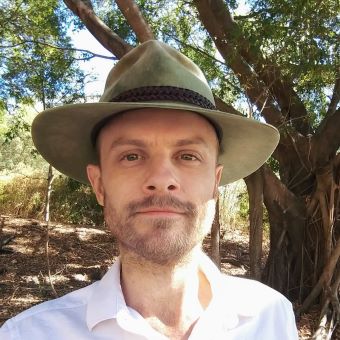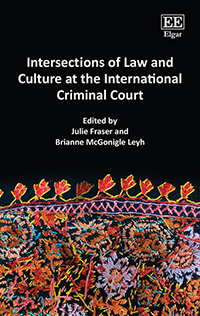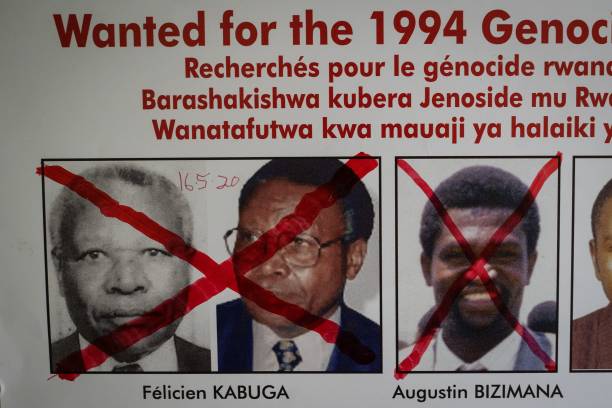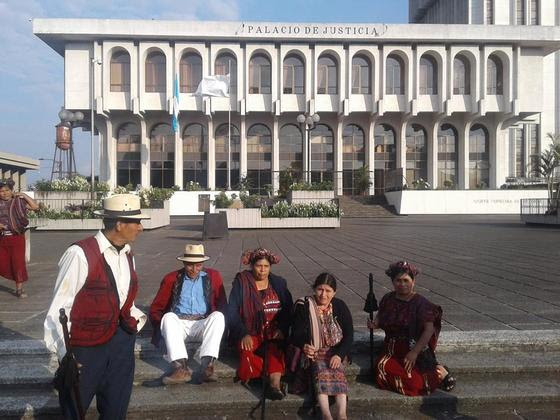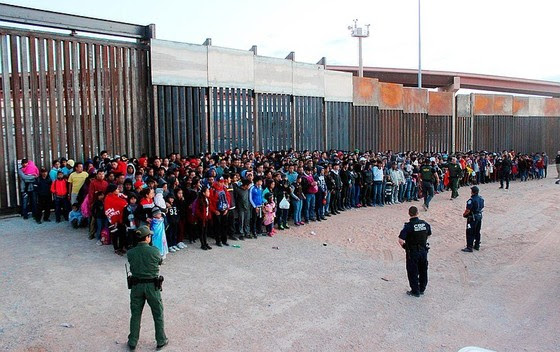Area of Interest: Language in courts and legal proceedings
-
June 2025: Speaking Mayan Languages in the U.S. in 2025
This Spotlight comes from Hub member María Luz García, Professor of Anthropology at Eastern Michigan University. In an article recently published in the Political and Legal Anthropology Review (POLAR 2024, 47:209-222), María describes the racialized experience of Indigenous people from Latin America who work as legal interpreters in the U.S. Below, María brings out the…
-
December 2022: “What does English-language dominance mean for the field of international law and justice?”
This month’s Spotlight comes from Language, Culture and Justice Hub director Leigh Swigart. She brings us her reflections, along with those of other scholars, about the impacts of having a single language dominate a field that purports to both reflect and serve a global population characterized by enormous linguistic diversity. It cannot be denied that…
-
September 2022: “Interpretation at the Asylum Office”
This month’s feature is contributed by LCJ Hub member Hillary Mellinger, an Assistant Professorof Criminal Justice and Criminology at Washington State University. Hillary’s research focuses on language access within the U.S. immigration and criminal justice systems, the challenges that asylum applicants and attorneys encounter at the U.S. Asylum Office, and the criminalization of migration. Prior…
-
March 2022: “Linguistic profiling: An under-recognized force in the justice system and beyond”
LCJ Hub member Shawna Shapiro, Associate Professor of writing and linguistics at Middlebury College in the US, calls our attention to an often unperceived influence on our interactions and understandings, including those in the legal field. Read more about Shawna’s work at her college webpage. One of the commonplaces in the legal profession and the criminal…
-
October 2021: ‘Supporting two-way communication with police in Western Australia: new translation app helps to identify need for Aboriginal interpreters’
By Alex Bowen, Linguist and Trainer, Aboriginal Interpreting Western Australia; PhD Student, University of Melbourne Aboriginal Interpreting Western Australia (AIWA) recently worked with the Western Australia Police Force to develop an app which could signal a new direction in communication with Aboriginal people who are arrested. The app, which police have on their phones, delivers…
-
June 2021: “Linguistic Lives as Working Lives: Exploring Communication Labor with Legal Interpreters’ Language Life Histories”
By Sonya Rao, American Bar Association/AccessLex Institute Post-Doctoral Fellow in Legal and Higher Education The life history interview, a type of oral history that covers the events of an individual’s life experiences, is a useful methodological tool for social scientists and historians. In these interviews, researchers can explore the depths of an individual’s historical experience and…
-
April 2021: “Lost in Translation: Interpretation as a Barrier to Asylum in Texas Immigration Courts”
By Edith Muleiro, The University of Texas at Austin Language influences our lives in many ways. For some this influence may be subtle, but in a courtroom the ability to understand and be understood becomes the determining factor in one’s future. Imagine standing in a new and unfamiliar country before a judge. A form in…
-
November 2020: “Book Unpacks Crucial Ways in Which Law and Culture Are Intertwined”
This month’s Spotlight is contributed by Language, Culture and Justice Hub members Julie Fraser and Brianne McGonigle Leyh of Utrecht University. We are pleased to present our new edited volume Intersections of Law and Culture at the International Criminal Court, published in October by Edward Elgar Press. This book takes as a premise that notions of culture affect the legal foundations,…
-
June 2020: “Back to the International Criminal Tribunal for Rwanda”
This commentary comes from Hub member Leigh Swigart. The world of international criminal justice was recently rocked by the arrest of longtime fugitive-from-justice Félicien Kabuga, charged by the International Criminal Tribunal for Rwanda (ICTR) with multiple counts of genocide and crimes against humanity allegedly committed during the 1994 Rwandan genocide. Kabuga was a prominent Rwandan…
-
April 2020: “Culture’s Contribution to Justice: The Story of a Dance-Drama and Cambodia’s Khmer Rouge Tribunal”
This commentary was contributed by Hub member Toni Shapiro-Phim, associate professor of Creativity, the Arts, and Social Transformation, Brandeis University. Toni Shapiro-Phim A “moral and collective reparation” project associated with the Extraordinary Chambers in the Courts of Cambodia (ECCC) — also known as the Khmer Rouge Tribunal — offers an example of the potency of expressive…
-
November 2019: ‘A Look at Language and Culture Issues in Mass Violence Trials’
What kinds of misunderstandings emerge in the context of criminal trials dealing with war crimes, crimes against humanity and genocide? What are the impacts of different linguistic and cultural practices on both the proceedings and the ways in which these proceedings are understood? While various scholars and observers have mapped parts of this vast terrain…
-
October 2019: ‘Exploring Interpretation as a Right in the Context of Migration’
The Trump administration recently decided that providing in-court interpretation during initial-phase immigration proceedings represents an unnecessary expense in an already bogged-down system. Migrants will be shown a film explaining legal procedures in a variety of languages but will not be able to ask questions and receive more information on the spot. According to the San Francisco…




